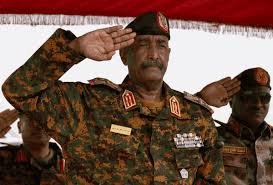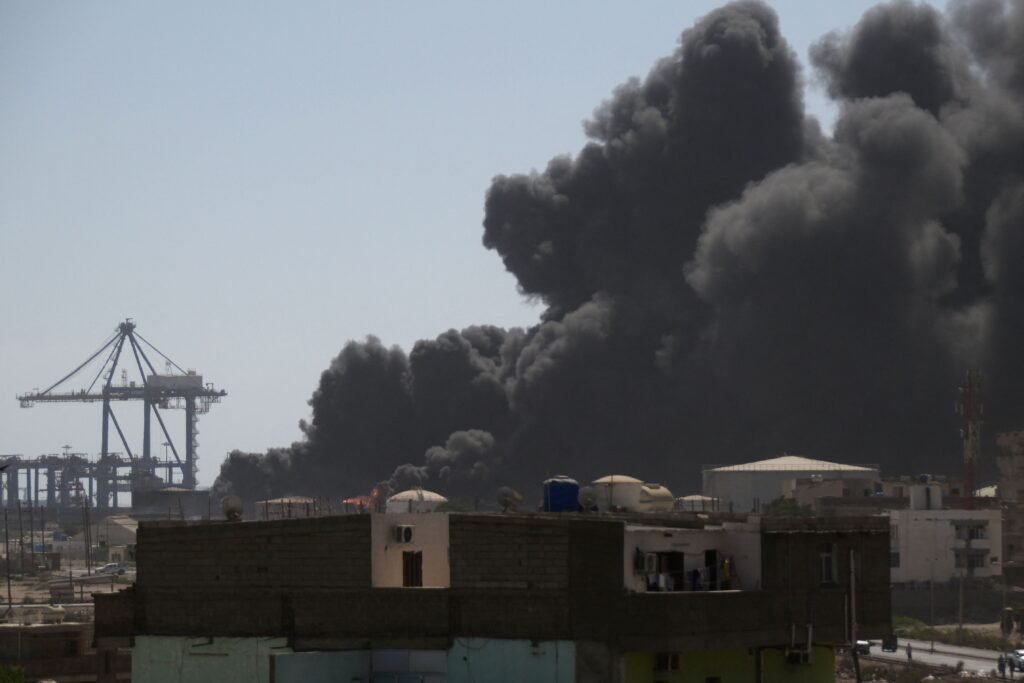The ongoing civil war in Sudan has reached new heights of tension following the recent announcement by Sudan’s army-aligned government, which declared the United Arab Emirates (UAE) an “aggressor state” and severed diplomatic ties. This dramatic step, which has captured international attention, comes amid accusations that the UAE has been actively supporting the rival paramilitary group, the Rapid Support Forces (RSF), with military supplies, including advanced weaponry and drones. This move has the potential to further destabilize the already volatile region, especially as the conflict has been escalating since its onset in April 2023.
The Background of the Conflict
Sudan’s civil war began when tensions between the Sudanese Armed Forces (SAF), led by General Abdel Fattah al-Burhan, and the RSF, commanded by Mohamed Hamdan Dagalo, reached a breaking point. Both factions initially worked together in a delicate power-sharing arrangement following the 2019 ousting of long-time dictator Omar al-Bashir. However, fractures between the two military entities deepened over disagreements regarding the integration of the RSF into the regular army as part of a planned transition to civilian rule.
By April 2023, violence erupted between the two factions, spiraling into a full-scale conflict. Cities like Khartoum, Darfur, and Port Sudan have seen heavy fighting, leading to widespread displacement, loss of life, and damage to infrastructure. Humanitarian organizations have struggled to deliver aid to millions of people caught in the crossfire. At the same time, the international community has scrambled to broker peace, but the situation remains intractable, with both the SAF and RSF entrenched in their positions.

Sudan’s Accusations Against the UAE
The accusations against the UAE, issued by Sudan’s Security and Defence Council on May 6, 2025, are severe. The Sudanese government claims that the UAE has been providing critical support to the RSF, including supplying advanced weaponry, drones, and logistical support. Sudan accuses the UAE of facilitating drone strikes on key infrastructure, particularly in the port city of Port Sudan, which has been a vital lifeline for the country’s trade and humanitarian aid.
In the statement, the Sudanese government labeled the UAE as an “aggressor state” and warned that such actions would not go unpunished. According to Sudanese officials, the UAE’s involvement in the conflict has directly fueled the violence, disrupted the delivery of humanitarian aid, and contributed to civilian casualties.

The UAE, however, has vehemently denied these accusations. In a statement issued shortly after the Sudanese announcement, the UAE government emphasized its commitment to peace in Sudan and its non-interference in the internal affairs of the country. The UAE has called for dialogue between the warring factions and has pledged to continue supporting efforts for a peaceful resolution through diplomatic channels. The UAE’s stance is consistent with its broader foreign policy approach, which often seeks to position itself as a mediator in Middle Eastern and African conflicts.
The UAE’s Role in Sudan and the Wider Region
The UAE’s involvement in Sudan has been a subject of scrutiny for some time. As a key player in the Gulf region, the UAE has maintained close ties with Sudanese military leaders, particularly General al-Burhan, who has received logistical and financial support from Gulf states. The UAE, along with Saudi Arabia, played a crucial role in Sudan’s transitional government post-Bashir, providing assistance in the form of aid packages and investments to stabilize the country. However, as the situation deteriorated, some observers noted that the UAE’s support for Sudan’s military leaders was seen by the RSF as an infringement on their interests, exacerbating tensions.
Additionally, the UAE has been implicated in broader regional dynamics in the Horn of Africa. The country has forged close ties with various factions and governments in the region, including Eritrea, Egypt, and Somalia. This strategic alignment has given the UAE significant influence over Sudan, where it has maintained an interest in securing access to ports and other strategic resources.
The Impact of the UAE-Sudan Rift on Regional Stability
The sudden breakdown in diplomatic relations between Sudan and the UAE raises the stakes not only for Sudan but for the wider region. Sudan’s immediate neighbors, including Egypt, South Sudan, and Chad, have all been impacted by the spillover of violence, which has displaced millions of people. The disruption of trade routes through Port Sudan, a key transit point for goods and aid, is likely to exacerbate the already fragile economic conditions in the region.
Port Sudan is one of Sudan’s last remaining lifelines for importing and exporting goods, as much of the country’s infrastructure has been damaged or rendered inoperable by the ongoing war. The UAE’s strategic role in the region, which includes its extensive maritime network, adds an additional layer of complexity to the conflict. The decision by Sudan to sever ties with the UAE could further strain relations in the Gulf and potentially push the UAE to reconsider its policies in the Horn of Africa.
Additionally, Sudan’s accusations against the UAE have broader implications for the relationship between the Gulf states and the African continent. If the UAE is found to be involved in the conflict in Sudan in a way that violates international norms, it could have ramifications for its diplomatic standing in the region. This would complicate the UAE’s foreign policy, particularly its efforts to present itself as a neutral broker in regional disputes.

The International Community’s Reaction
The international community has reacted with concern to the escalation in Sudan and the severing of diplomatic ties with the UAE. The United Nations, African Union, and various humanitarian organizations have urged all parties to the conflict to prioritize dialogue and cease hostilities. The UN has also expressed its concerns over the growing humanitarian crisis, with millions of people in need of food, water, shelter, and medical care.
The United States and European Union have called for an immediate cessation of hostilities and have warned against the further involvement of foreign powers in the Sudanese conflict. The European Union has expressed concern that the continued destabilization of Sudan could lead to a regional spillover, particularly into neighboring Chad and South Sudan, both of which are already grappling with their own security challenges.
Despite these calls for peace, the situation on the ground remains dire, with both the SAF and RSF continuing to engage in heavy fighting. The potential for further foreign involvement complicates the path to a peaceful resolution, as external actors, including the UAE, are likely to pursue their interests in a rapidly changing political landscape.
The Path to Peace
As Sudan and the UAE navigate this diplomatic rupture, the question remains: what is the path forward for Sudan? The return to negotiations seems increasingly unlikely in the immediate future, as both the SAF and RSF are deeply entrenched in their positions. The international community faces an uphill battle in trying to mediate peace, as local stakeholders remain resistant to external interference.
In the face of continued violence and instability, the ultimate solution may lie in a more inclusive dialogue that includes all stakeholders, including civilian representatives, and addresses the underlying issues of governance, resource distribution, and regional autonomy. Until then, Sudan faces a perilous road ahead, with the specter of foreign involvement and the struggle for control over the country’s future still very much in the air.
Conclusion
The declaration of the UAE as an “aggressor state” by Sudan and the subsequent severing of diplomatic ties marks a turning point in the ongoing Sudanese conflict. The implications of this move are significant, not only for Sudan and the UAE but for the broader Horn of Africa region. As both sides continue to navigate this complex conflict, the role of international actors, regional powers, and local stakeholders will be critical in determining the future stability of Sudan and the surrounding area. However, with both military factions seemingly locked in a battle for dominance, the prospects for a peaceful resolution appear increasingly uncertain.
Do follow Uae stories for more Updates
Havas Life Opens Dubai Office to Serve Thriving Middle East and North Africa Region














